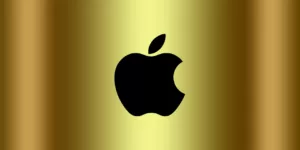Apple is divorcing Intel, and Intel should be throwing a party because Apple and Intel should never have partnered. I first got a glimmer of this from Andy Grove before he died as he felt that Steve Jobs had misled him and done the firm he helped form, Intel, a ton of harm. But the fact is that Apple is an abusive vendor at least concerning their suppliers, and their relationship with Intel introduced a massive amount of inefficiency in the PC market. One aspect was that it was Apple’s iPad that put the market in distress, and because Apple was a client of Intel, Intel was effectively blocked from moving aggressively against the threat.
While the announced process will take two years, Intel would be foolish to give Apple the same level of support now that Apple openly plans to compete with the company. So, I expect this will happen far faster than they initially intended. Long breakups are excessively painful, and both parties will likely find that just getting this over with will be far easier. For instance, as Apple’s volumes drop off, their prices will have to increase per unit, and Intel is bound to treat every OEM the same, which won’t sit well with Apple. And Apple moving to disparage x86 aggressively won’t sit well with Intel.
Besides, Apple tried to get Intel to pivot into Qualcomm’s space with inferior technology and allegedly got caught cheating, which did neither company any good. Intel had to exit the segment, and Apple, after buying the technology from Intel, now has an inferior modem platform in what is an extremely competitive high-end market.
Pivoting to ARM for PCs will put them up against Chromebooks, which, with some exceptions, low margin low-cost offerings, and at the other end of the pricing spectrum from where MacBooks, and Apple, typically reside. ARM can perform, but platform pivots typically cost firms market share, and the last time Apple did this, Intel had their back, and Steve Jobs was still there, this time Tim Cook is going it alone, and Intel won’t be hampered in their defense of the x86 PC market. As a result, the outcome could be very different.
Let’s look at the dynamics of both moves.
PowerPC To X86 – X86 To ARM
The shift to X86 was ugly because it required that the OS and applications be rewritten. After all, there wasn’t enough processor headroom to do emulation. The architectures of the two processor families were very different, and Apple bled market share. They didn’t have a lot of it, but eventually, with Steve Jobs providing assurances that the wait would be worth it, Apple emerged at the back and got much of its market share back. But their investment, and interest, in PCs, seemed to decline as they moved to consumer electronics and eventually the iPhone which was initially Qualcomm based and then Apple had one of the ugliest divorces from a vendor, Qualcomm, I’ve ever seen with what was a credible attempt to put the firm out of business in what looked like an attempt to steal Qualcomm’s intellectual property using and abusing Intel in the process. Intel was brutalized in the attempt and eventually had to sell its modem technology to Apple at a discount leaving Apple with an inferior modem for their premium-priced phone but also with more control over their margins.
Now Apple is going to pivot from x86 to ARM, another challenging migration because again, the two processor families are very different, which will again require the MacOS codebase to migrate to a different platform and a different operating system. You may recall that Microsoft tried something similar to Windows and the Windows Phone and that this move didn’t end well. While attractive to have a joint code base that scales from Smartphones to PCs, the difference in usage models, relative performance, user interface, and platforms created enormous problems for Microsoft. However, ARM has evolved, it can scale up to even supercomputer performance (the fastest supercomputer is now ARM-based), and there is a far better chance Apple will get this to work. Still, the pivot will be as ugly as the PowerPC to X86 pivot was. And while ARM does have the potential to pull this off, an ARM + GPU architecture needed for their higher-end products will require a lot of Apple heavy lifting. PCs are almost noise to Apple these days and not a priority platform, so the odds favor Apple eventually exiting this market unless they can do as well without Jobs bringing their base with them as they did with him.
With both the Supercomputer move and Apple’s announcement, x86 is at high risk. Intel will need to focus on preserving its market, a market that Apple, shortly will not only not be part of but will have switched to the anti-x86 side, making them an additional threat to Intel.
The Divorce Is Good For The Industry
The relationship between Intel and Apple wasn’t a healthy one. Apple’s actions against Qualcomm drew Intel in, and Intel, as a result, seemed to be damaged the most at the end. Apple had unique requirements that other PC OEMs didn’t drive up Intel’s costs, and Apple is known for being very difficult. The result was suboptimal. The Apple relationship also didn’t allow Intel to aggressively defend their platform and direction against iPad or iPhone technology. With the separation, Intel will be able to market against ARM competitive solutions in their space now more aggressively.
Intel will now be able to collapse their special Apple office and shift resources to supporting the other, more loyal, OEMs and go back to competing against Apple’s offerings. The removal of Apple conflicts should help the company better optimize their efforts and more aggressively defend their platforms. It should also help them improve relationships with the other OEMs who seemed to resent Apple’s favored status, and they always suspected that Apple likely got a better deal, and this will also remove that cloud.
In short, Intel without Apple should be better focused, more responsive to their loyal customers, and far less distracted or influenced by Apple’s shenanigans.
Wrapping Up:
While divorces are painful when one partner isn’t committed to it, and Apple has never to my knowledge ever been fully committed to any of their partnerships, the relationship will fail. When that kind of failure occurs, it is generally better for both partners to separate. But when one partner is abusive, and Apple has been historically abusive to suppliers. The most significant benefit goes to the abused partner and, in this case, that is Intel. I imagine like kids who are living in a house with divorced parents for a while realize, the folks on the Apple team in Intel will want this process over far more quickly than two years. This result is because this relationship is going to become a ton more aggravating as both companies flip from bad partners to focused competitors.
In the end, this is big; it will correct a partnership that never should have happened, and Apple will be standing alone for the first time since Jobs passed. If Tim Cook pulls this off, he’ll be entirely out of Jobs’s shadow, but the odds don’t look good for him because he is neither marketing nor a product specialist, and those skills will be critical. But no risk, no reward, and there is a decent chance both Apple and Intel will emerge better from this because no one wins in a bad partnership.








